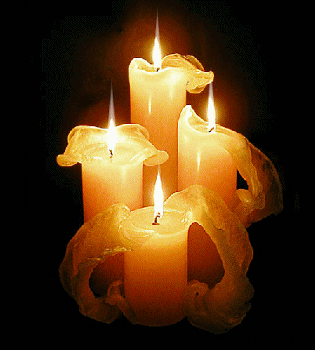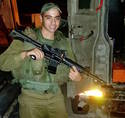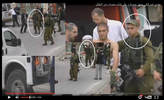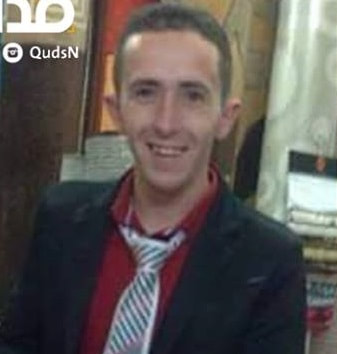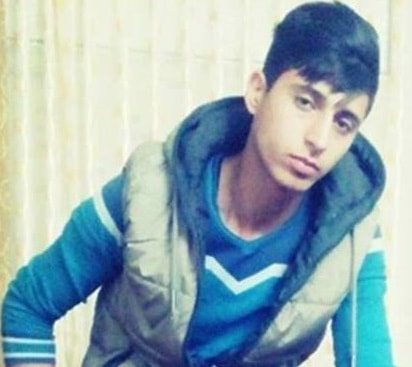21 nov 2016

Azaria’s defense attorneys submit final 291-page summary of the case as the judges prepare to reach a verdict; lawyers reiterate his genuine fear of an explosive vest, cite prevailing confusion at the scene, warn that a sentence could have serious repercussions on soldiers’ abilities to make decisions.
Sgt. Elor Azaria’s defense team submitted a final summary of the defendant’s case to the Military Court in Jaffa on Sunday in a documents comprising 291 pages.
“Elor Azaria is the salt of the earth, and he could be any one of us, any one of our children, who wound up in a military incident and a pressured, dangerous and almost impossible situation,” the summary stated.
Throughout the summary his attorneys Eyal Beserglick and Ilan Katz reiterated the crux of the case put forth throughout the months-long trial. Time and again, the two emphasized that Azaria’s decision to shoot the wounded terrorist—who had stabbed Azaria's comrade just a few minutes before—in the head was on account of the fact that he sensed a real and life-threatening danger to both himself and those around him.
The attorneys cited the atmosphere of chaos at the scene, they highlight the screaming of the numerous shouts of “there could be a bomb” and reference the intelligence warnings that a Hamas terror attack combining stabbings and explosions could be imminent. Moreover, Azaria’s defense team also points to the finding of a knife next to the body of the terrorist from his view, the puffer jacket being worn by the terrorist which aroused suspicion that he was disguising a suicide vest, and the fact that the terrorist was still moving before Azaria pulled the trigger.
Addressing one of the key charges leveled against Azaria, his team flatly categorically rejected that he had ever said immediately after the incident to his company commanders that he shot the terrorists because he tried to kill his friend and therefore deserved to die.
The defense declared that even if such a statement had been made, it should be taken in the context of a man who had experienced a traumatic event and who was sleep-deprived. They added, “The claims that he said these things were not proven to the extent required for a criminal conviction. Even if the claim is accepted—a person can think that a terrorist should die—a statement such as this still does not preclude the possibility that Azaria thought there was still a danger posed by the terrorist.”
Katz and Beserglick also offered an explanation as to why the terrorist was shot in the head as opposed to anywhere else. “It was no choice but to shoot one bullet in order to ensure that he was neutralized, and not in the body since that could have resulted in an explosive belt detonating,” the defense wrote before warning that convicting Azaria could set a dangerous precedent with ramifications affecting the judgment of other IDF soldiers in the future in similar circumstances.
“It could have a profound impact on the IDF being able to give operational orders,” the summary said.
Criticism was also directed against the chief judge Col. Maya Heller. “The defense was extremely surprised when the presiding judge addressed the indicated individual in the presence of the media and those present in the courtroom and asked him several times, ‘Why are you twisting things?’ This conduct caused the defense to believe that the presiding judge is not able to judge objectively in this case.”
Earlier in the month, military prosecutor Lt. Col. Nadav Weisman submitted his final summary in the trial in which he used the words “he lied” no fewer than 23 time to describe the defendant's testimony.
This Wednesday, the defense and prosecution teams will deliver their final speeches to the case judges. A verdict is expected to be reached next month.
If Azaria is found guilty of killing the seriously wounded terrorists in Hebron in March, his sentence will be handed down approximately three weeks later.
Sgt. Elor Azaria’s defense team submitted a final summary of the defendant’s case to the Military Court in Jaffa on Sunday in a documents comprising 291 pages.
“Elor Azaria is the salt of the earth, and he could be any one of us, any one of our children, who wound up in a military incident and a pressured, dangerous and almost impossible situation,” the summary stated.
Throughout the summary his attorneys Eyal Beserglick and Ilan Katz reiterated the crux of the case put forth throughout the months-long trial. Time and again, the two emphasized that Azaria’s decision to shoot the wounded terrorist—who had stabbed Azaria's comrade just a few minutes before—in the head was on account of the fact that he sensed a real and life-threatening danger to both himself and those around him.
The attorneys cited the atmosphere of chaos at the scene, they highlight the screaming of the numerous shouts of “there could be a bomb” and reference the intelligence warnings that a Hamas terror attack combining stabbings and explosions could be imminent. Moreover, Azaria’s defense team also points to the finding of a knife next to the body of the terrorist from his view, the puffer jacket being worn by the terrorist which aroused suspicion that he was disguising a suicide vest, and the fact that the terrorist was still moving before Azaria pulled the trigger.
Addressing one of the key charges leveled against Azaria, his team flatly categorically rejected that he had ever said immediately after the incident to his company commanders that he shot the terrorists because he tried to kill his friend and therefore deserved to die.
The defense declared that even if such a statement had been made, it should be taken in the context of a man who had experienced a traumatic event and who was sleep-deprived. They added, “The claims that he said these things were not proven to the extent required for a criminal conviction. Even if the claim is accepted—a person can think that a terrorist should die—a statement such as this still does not preclude the possibility that Azaria thought there was still a danger posed by the terrorist.”
Katz and Beserglick also offered an explanation as to why the terrorist was shot in the head as opposed to anywhere else. “It was no choice but to shoot one bullet in order to ensure that he was neutralized, and not in the body since that could have resulted in an explosive belt detonating,” the defense wrote before warning that convicting Azaria could set a dangerous precedent with ramifications affecting the judgment of other IDF soldiers in the future in similar circumstances.
“It could have a profound impact on the IDF being able to give operational orders,” the summary said.
Criticism was also directed against the chief judge Col. Maya Heller. “The defense was extremely surprised when the presiding judge addressed the indicated individual in the presence of the media and those present in the courtroom and asked him several times, ‘Why are you twisting things?’ This conduct caused the defense to believe that the presiding judge is not able to judge objectively in this case.”
Earlier in the month, military prosecutor Lt. Col. Nadav Weisman submitted his final summary in the trial in which he used the words “he lied” no fewer than 23 time to describe the defendant's testimony.
This Wednesday, the defense and prosecution teams will deliver their final speeches to the case judges. A verdict is expected to be reached next month.
If Azaria is found guilty of killing the seriously wounded terrorists in Hebron in March, his sentence will be handed down approximately three weeks later.
7 nov 2016
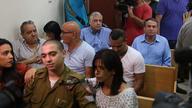
As Sgt. Elor Azaria’s trial reaches its peroration, prosecution attorney submits summary to the court, repeatedly accusing the defendant of lying and requesting that he be convicted of manslaughter; verdict expected to be announced in December.
Military prosecutor Lt. Col. Nadav Weisman submitted a final summary in the trial of Sgt. Elor Azaria to the Military Court in Jaffa on Monday in which he used the words “he lied” no fewer than 23 times to describe the defendant's testimony.
Furthermore, the 145-page summary, the main premise of which is condensed into three pages, recommends that Azaria be convicted of manslaughter.
The defense summoned its last witness to the dock at the end of last month, marking the conclusion of the hearing of prosecution and defense testimony.
Sgt. Azaria is facing manslaughter charges after he shot to death a seriously wounded Palestinian terrorist, Abed al Fatah al-Sharif, in Hebron.
In his final notes, the prosecutor claims dozens of times that Sgt. Azaria lied during his testimony, made blatantly false accusations against his commander, changed his version of events five times and "made up fictitious details."
Weisman also sought to bring to the judge’s attention that Azaria had engaged, he claimed, in the fabrication of falsehoods despite the evidence marshalled against him, including the video filmed by a B'Tselem cameraman documenting the incident.
“The one shot that was fired by the indicted individual rocked the entire state,” Weisman concluded. “It caused thunderous reverberations in the heart of public debate and aroused disputes in a number of fields. This public discourse, however important it may be, belongs outside of the court.”
The submission of Weisman’s deductions signals the advent of the final chapter in the national saga which whipped the country—including the highest political and military echelons—into a hysterical frenzy.
By the end of November, both the prosecution and defense will deliver their concluding statements in a final bid to extract their respective desired verdict. Shortly thereafter, at a date likely in December, Judge Maya Heller will announce the verdict. If Azaria is indeed found guilty, the expected sentence will likely amount to several years in prison.
Military prosecutor Lt. Col. Nadav Weisman submitted a final summary in the trial of Sgt. Elor Azaria to the Military Court in Jaffa on Monday in which he used the words “he lied” no fewer than 23 times to describe the defendant's testimony.
Furthermore, the 145-page summary, the main premise of which is condensed into three pages, recommends that Azaria be convicted of manslaughter.
The defense summoned its last witness to the dock at the end of last month, marking the conclusion of the hearing of prosecution and defense testimony.
Sgt. Azaria is facing manslaughter charges after he shot to death a seriously wounded Palestinian terrorist, Abed al Fatah al-Sharif, in Hebron.
In his final notes, the prosecutor claims dozens of times that Sgt. Azaria lied during his testimony, made blatantly false accusations against his commander, changed his version of events five times and "made up fictitious details."
Weisman also sought to bring to the judge’s attention that Azaria had engaged, he claimed, in the fabrication of falsehoods despite the evidence marshalled against him, including the video filmed by a B'Tselem cameraman documenting the incident.
“The one shot that was fired by the indicted individual rocked the entire state,” Weisman concluded. “It caused thunderous reverberations in the heart of public debate and aroused disputes in a number of fields. This public discourse, however important it may be, belongs outside of the court.”
The submission of Weisman’s deductions signals the advent of the final chapter in the national saga which whipped the country—including the highest political and military echelons—into a hysterical frenzy.
By the end of November, both the prosecution and defense will deliver their concluding statements in a final bid to extract their respective desired verdict. Shortly thereafter, at a date likely in December, Judge Maya Heller will announce the verdict. If Azaria is indeed found guilty, the expected sentence will likely amount to several years in prison.
26 oct 2016
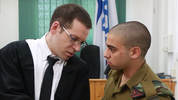
Azaria’s lawyer Eyal Beserglick
Witness tells court that despite not wanting to testify, Sgt. Elor Azaria’s actions were justified; ‘I saw the terrorist moving and I reported that he was alive. Then there were gunshots. I reported this as justified fire.'
A witness told the military court in Jaffa on Wednesday that Sgt. Elor Azaria's lawyer asked him to testify on behalf of his client by sending him a text message that read, "Can you help me destroy the brigade commander?"
“God forbid, I didn't want to do such a thing," said Yoni Bleichberd, a military security coordinator from a Jewish settlement in Hebron, who was testifying on behalf of the defense.
Bleichberd told the court that he did not want to testify and that he had repeatedly rejected what he described as "impolite" requests to do so by Azaria’s lawyer Eyal Beserglick.
Beserglick responded to the the apparent distraction from the central focus of the case. “Obviously this was terminology referring to undermining the reliability of the brigade commander,” he emphasized.
Sgt. Azaria is facing manslaughter charges after he shot to death a seriously wounded Palestinian terrorist, Abed al Fatah al-Sharif, in Hebron.
In his testimony, Bleichberd corroborated the account of events put forth by the defense that the terrorist was moving while lying on the ground and described the overall climate of confusion prevailing at the scene of the attack. “The whole area was a mess. This was something that we are not used to. I am not the chief of staff but I was in many incident like this," he said. “The conduct was correct. From our point of view, any fear of a device exploding was over (after Azaria shot).”
"I saw the terrorist with a black jacket moving. I amended my report, saying one of the terrorists was alive and then there was shooting. I reported this as justified fire.”
The statement appeared to contradict the conclusions drawn by former Yehuda Brigade commander, Col. Yariv Ben-Ezra, in June against Azaria. "The shooting was unjustified because it happened in a situation in which there was no mortal danger," Ben-Ezra told the court at the time.
So far, the court has heard testimony from senior ranking IDF and security officials, some of whom have heaped harsh criticism on those who they accuse of having abandoned Azaria in a concerted effort to absolve themselves of any responsibility for his actions.
Weisman continued to mention other text messages sent by the defense lawyer. “The lawyer told you in a message that he would have you court ordered if you didn’t come and you told him that if that happens you would cause a commotion. You wrote back that ‘even if they get me there I won’t speak.’”
Bleichberd responded: “I am not committed to the court and not to anyone except my wife and children. I did all I could in order not to come and I said ‘tell them I extended my travels abroad’ even though I didn’t. I am against the attempt to turn me into a state liar.”
Bleichberd then contended that the testimony of the brigade commander had been riddled with contradictions. “At the time of the shooting I was standing next to Azaria—maybe a meter and a half away from him. Col. Yariv Ben-Ezra arrived, I gave him a situation report and told him that the two terrorists were not killed at the same time but rather one was at the beginning and the second—the one with the explosive device—was killed a few minutes later. This way if a video of the incident came out, he would know that the two terrorists were not killed at the same time so that he would not be humiliated.”
He maintained that had the situation been handled more appropriately to begin with, the entire incident would not have occurred. “A live terrorist is something frightening. I confess that is it is extremely scary. It isn’t nice. A terrorist ready to die will do anything to take with him as many civilians and innocents as possible.”
Witness tells court that despite not wanting to testify, Sgt. Elor Azaria’s actions were justified; ‘I saw the terrorist moving and I reported that he was alive. Then there were gunshots. I reported this as justified fire.'
A witness told the military court in Jaffa on Wednesday that Sgt. Elor Azaria's lawyer asked him to testify on behalf of his client by sending him a text message that read, "Can you help me destroy the brigade commander?"
“God forbid, I didn't want to do such a thing," said Yoni Bleichberd, a military security coordinator from a Jewish settlement in Hebron, who was testifying on behalf of the defense.
Bleichberd told the court that he did not want to testify and that he had repeatedly rejected what he described as "impolite" requests to do so by Azaria’s lawyer Eyal Beserglick.
Beserglick responded to the the apparent distraction from the central focus of the case. “Obviously this was terminology referring to undermining the reliability of the brigade commander,” he emphasized.
Sgt. Azaria is facing manslaughter charges after he shot to death a seriously wounded Palestinian terrorist, Abed al Fatah al-Sharif, in Hebron.
In his testimony, Bleichberd corroborated the account of events put forth by the defense that the terrorist was moving while lying on the ground and described the overall climate of confusion prevailing at the scene of the attack. “The whole area was a mess. This was something that we are not used to. I am not the chief of staff but I was in many incident like this," he said. “The conduct was correct. From our point of view, any fear of a device exploding was over (after Azaria shot).”
"I saw the terrorist with a black jacket moving. I amended my report, saying one of the terrorists was alive and then there was shooting. I reported this as justified fire.”
The statement appeared to contradict the conclusions drawn by former Yehuda Brigade commander, Col. Yariv Ben-Ezra, in June against Azaria. "The shooting was unjustified because it happened in a situation in which there was no mortal danger," Ben-Ezra told the court at the time.
So far, the court has heard testimony from senior ranking IDF and security officials, some of whom have heaped harsh criticism on those who they accuse of having abandoned Azaria in a concerted effort to absolve themselves of any responsibility for his actions.
Weisman continued to mention other text messages sent by the defense lawyer. “The lawyer told you in a message that he would have you court ordered if you didn’t come and you told him that if that happens you would cause a commotion. You wrote back that ‘even if they get me there I won’t speak.’”
Bleichberd responded: “I am not committed to the court and not to anyone except my wife and children. I did all I could in order not to come and I said ‘tell them I extended my travels abroad’ even though I didn’t. I am against the attempt to turn me into a state liar.”
Bleichberd then contended that the testimony of the brigade commander had been riddled with contradictions. “At the time of the shooting I was standing next to Azaria—maybe a meter and a half away from him. Col. Yariv Ben-Ezra arrived, I gave him a situation report and told him that the two terrorists were not killed at the same time but rather one was at the beginning and the second—the one with the explosive device—was killed a few minutes later. This way if a video of the incident came out, he would know that the two terrorists were not killed at the same time so that he would not be humiliated.”
He maintained that had the situation been handled more appropriately to begin with, the entire incident would not have occurred. “A live terrorist is something frightening. I confess that is it is extremely scary. It isn’t nice. A terrorist ready to die will do anything to take with him as many civilians and innocents as possible.”
9 oct 2016
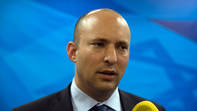
Education minister claims that 'the investigation was seriously tainted in an almost irreparable manner' and argued that 'Azaria and his family have already paid such a heavy price.'
Education Minister Naftali Bennett called on Saturday night to pardon Sgt. Elor Azaria, who is on trial after shooting dead a seriously wounded terrorist.
"I've been following the trial and I've reached the conclusion that if Elor Azaria is convicted, he needs to be given an immediate pardon and not spend a single day in prison," Bennett said on Channel 2's Meet the Press.
The leader of Bayit Yehudi claimed that "the investigation was seriously tainted in an almost irreparable manner. In addition, (Azaria) and his family have already paid such a heavy price."
"That is the message that we need to send the soldiers of the Israeli Defense Force," he argued. "We send the soldiers of the IDF to protect us from a wave of murderous Palestinian terrorism. We're with you. If you blatantly stray from the path, there's a way to handle it. But not in a way in which you're condemned that very night. That's why I expect Elor Azaria to be pardoned."
Following Bennett's comments, Azaria's lawyers called on Justice Minister Ayelet Shaked, also of Bayit Yehudi, to express her position on what they say is the "tainting" of the judicial procedure.
"We don't deal with speculations or assumptions; we are working tirelessly to get an acquittal for Elor, which makes sense given the evidence," the defense team said in a statement.
MK Eyal Ben-Reuven of the Zionist Union, a major general in reserves, accused Bennett of "continuing to wage an ugly political war against the IDF's ethics and against the judicial procedure."
MK Elazar Stern of Yesh Atid, a major general in reserves as well, also blasted the remarks.
"Minister Bennett has already gone up to the Knesset podium to tell us all that he had called Elor Azaria's father. It took 48 hours for the prime minister to announce to the nation that he too spoke to the soldier's parents," he said. "This evening, the education minister called for a pardon (for Azaria). I suppose it'll be two days before the prime minister urges to give (Azaria) a commendation."
"The sad, transparent clash between Bibi and Bennett is undermining the trust in the IDF. Politicians should also have limits when it comes to national responsibility," he added.
Education Minister Naftali Bennett called on Saturday night to pardon Sgt. Elor Azaria, who is on trial after shooting dead a seriously wounded terrorist.
"I've been following the trial and I've reached the conclusion that if Elor Azaria is convicted, he needs to be given an immediate pardon and not spend a single day in prison," Bennett said on Channel 2's Meet the Press.
The leader of Bayit Yehudi claimed that "the investigation was seriously tainted in an almost irreparable manner. In addition, (Azaria) and his family have already paid such a heavy price."
"That is the message that we need to send the soldiers of the Israeli Defense Force," he argued. "We send the soldiers of the IDF to protect us from a wave of murderous Palestinian terrorism. We're with you. If you blatantly stray from the path, there's a way to handle it. But not in a way in which you're condemned that very night. That's why I expect Elor Azaria to be pardoned."
Following Bennett's comments, Azaria's lawyers called on Justice Minister Ayelet Shaked, also of Bayit Yehudi, to express her position on what they say is the "tainting" of the judicial procedure.
"We don't deal with speculations or assumptions; we are working tirelessly to get an acquittal for Elor, which makes sense given the evidence," the defense team said in a statement.
MK Eyal Ben-Reuven of the Zionist Union, a major general in reserves, accused Bennett of "continuing to wage an ugly political war against the IDF's ethics and against the judicial procedure."
MK Elazar Stern of Yesh Atid, a major general in reserves as well, also blasted the remarks.
"Minister Bennett has already gone up to the Knesset podium to tell us all that he had called Elor Azaria's father. It took 48 hours for the prime minister to announce to the nation that he too spoke to the soldier's parents," he said. "This evening, the education minister called for a pardon (for Azaria). I suppose it'll be two days before the prime minister urges to give (Azaria) a commendation."
"The sad, transparent clash between Bibi and Bennett is undermining the trust in the IDF. Politicians should also have limits when it comes to national responsibility," he added.
27 sept 2016
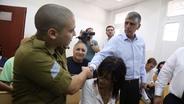
Brig. Gen. (res.) Shmuel Zakai shaking Azaria's hand in court
Brig. Gen. (res.) Shmuel Zakai claims 'I've seen shooting to remove a threat—it's not the same as a person who shoots to kill with the intention of killing.'
The former commander of the Gaza Division, Brig. Gen. (res.) Shmuel Zakai, asserted on Tuesday that Sgt. Elor Azaria, who shot dead a seriously wounded terrorist, did not shoot with the intention of killing.
"In my lifetime, I've seen people who shot to kill, with the intention of killing, and fortunately all of these people were not IDF soldiers," Zakai said. "And I've seen shooting to remove a threat—it's not the same as a person who shoots to kill with the intention of killing. Those who want to kill shoot to the center of mass and shoot more than one bullet."
He went on to say that "You can see in the video that the soldier is looking at the terrorist, cocks his weapon carefully, fires only one bullet to the head and immediately withdraws back. This is worth more than a thousand witnesses."
"The way Azaria is documented in the videos shooting the terrorist, it was clear to me that he was in danger," the former IDF officer added.
Zakai clarified that "shooting without cause, just to kill, is wrong, and I oppose this most emphatically. When the defendant claimed he shot the terrorist because he thought he was carrying an explosive on his person—then that is a reasonable reason under the circumstances to open fire."
He also stressed that he "understands the difference between concern there is a bomb and the certain identification of an explosive," adding "in my opinion, I assume (Azaria) was afraid of a bomb."
Zakai criticized Azaria's company commander, Maj. Tom Na'aman. "My feeling is that had the company commander properly clarified the rules of engagement, this incident would have been avoided," he said.
Zakai explained that in some operational situations, orders are given that alter the rules of engagement, such as when opening fire would put IDF soldiers at risk. "The company commander, who by his own testimony has conducted many such operations, did not give that order and left the soldier with the previous and unclear rules of engagement," he elaborated.
The former Gaza Division commander did not spare his rod from Azaria's former brigade commander, Col. Yariv Ben-Ezra, either, criticizing the orders he gave his soldiers.
At the end of his testimony, Zakai walked up to Azaria, shook the soldier's hand, and told him: "You acted according to procedures, I believe in your innocence."
Psychiatrist: 'I didn't identify PTSD in Azaria'
After Zakai, psychiatrist Prof. Mark Weiser, who met with Azaria after the incident to assess his mental state, took the stand.
Prof. Weiser clarified that he did not hear testimonies from other soldiers regarding Azaria's mental state after the shooting and that his assessment of the defendant was based solely on their meeting.
During that meeting, Azaria told the psychiatrist that he did not trust his opinion, accusing Prof. Weiser of cooperating with the prosecution in an attempt to convict him at any cost. The soldier also claimed the psychiatrist laughed at him.
Weiser responded to this at court, saying "I told him I wasn't trying to trip him and that I had no interest in acting against him. I didn't laugh at the defendant. I might have smiled at him when he said I wanted to harm him, because I saw this as something that I considered a bit humoristic."
Azaria's attorneys have claimed that the soldier was suffering from trouble sleeping before the attack, and that he arrived at the scene of the incident exhausted.
"According to my assessment, this wasn't the kind of sleep deprivation that might have affected the defendant's behavior," the psychiatrist said. "There is no explanation relating to hours of sleep, cognitive issues or confusion that could explain the defendant's behavior, in my opinion."
He went on to say that the "post traumatic symptoms I identified in Azaria did not justify a diagnosis. It was not my impression that the defendant was suffering from PTSD. He told me the company commander asked him to gather up the brain of the man he shot, and I didn't get the impression this was a particularly special and important incident, that is why I didn't detail it (before)."
Azaria's lawyer, Eyal Besserglick, said at the court hearing on Tuesday that the defense was open to mediation, something the military prosecutor is against.
Couple names newborn son after Sgt. Elor Azaria
Gil and Aviva Sissai from Gan Yavne named their baby after the soldier on trial for shooting dead a seriously wounded terrorist in Hebron; 'Everyone loved the name,' says the new father.
Gil and Aviva Sissai from Gan Yavne have decided to name their newborn son Elor, after Sgt. Elor Azaria, who is facing manslaughter charges after shooting dead a seriously wounded terrorist in Hebron.
"During the pregnancy, I was already thinking about how I wanted to name my son Elor," the new father said.
"That entire time I've been thinking about what Elor is going through, his family and all of the wrongs done to them," Gil continued. "A child went to protect the country, and they're ruining his family and his life."
"Everyone loved the name," the father added. "The synagogue was packed with people and they all shook my hand."
Sissai also had words of support for Azaria: "After the trial ends and he comes out innocent, I invite him to our home to visit little Elor. To me, he's a hero and I admire him."
Brig. Gen. (res.) Shmuel Zakai claims 'I've seen shooting to remove a threat—it's not the same as a person who shoots to kill with the intention of killing.'
The former commander of the Gaza Division, Brig. Gen. (res.) Shmuel Zakai, asserted on Tuesday that Sgt. Elor Azaria, who shot dead a seriously wounded terrorist, did not shoot with the intention of killing.
"In my lifetime, I've seen people who shot to kill, with the intention of killing, and fortunately all of these people were not IDF soldiers," Zakai said. "And I've seen shooting to remove a threat—it's not the same as a person who shoots to kill with the intention of killing. Those who want to kill shoot to the center of mass and shoot more than one bullet."
He went on to say that "You can see in the video that the soldier is looking at the terrorist, cocks his weapon carefully, fires only one bullet to the head and immediately withdraws back. This is worth more than a thousand witnesses."
"The way Azaria is documented in the videos shooting the terrorist, it was clear to me that he was in danger," the former IDF officer added.
Zakai clarified that "shooting without cause, just to kill, is wrong, and I oppose this most emphatically. When the defendant claimed he shot the terrorist because he thought he was carrying an explosive on his person—then that is a reasonable reason under the circumstances to open fire."
He also stressed that he "understands the difference between concern there is a bomb and the certain identification of an explosive," adding "in my opinion, I assume (Azaria) was afraid of a bomb."
Zakai criticized Azaria's company commander, Maj. Tom Na'aman. "My feeling is that had the company commander properly clarified the rules of engagement, this incident would have been avoided," he said.
Zakai explained that in some operational situations, orders are given that alter the rules of engagement, such as when opening fire would put IDF soldiers at risk. "The company commander, who by his own testimony has conducted many such operations, did not give that order and left the soldier with the previous and unclear rules of engagement," he elaborated.
The former Gaza Division commander did not spare his rod from Azaria's former brigade commander, Col. Yariv Ben-Ezra, either, criticizing the orders he gave his soldiers.
At the end of his testimony, Zakai walked up to Azaria, shook the soldier's hand, and told him: "You acted according to procedures, I believe in your innocence."
Psychiatrist: 'I didn't identify PTSD in Azaria'
After Zakai, psychiatrist Prof. Mark Weiser, who met with Azaria after the incident to assess his mental state, took the stand.
Prof. Weiser clarified that he did not hear testimonies from other soldiers regarding Azaria's mental state after the shooting and that his assessment of the defendant was based solely on their meeting.
During that meeting, Azaria told the psychiatrist that he did not trust his opinion, accusing Prof. Weiser of cooperating with the prosecution in an attempt to convict him at any cost. The soldier also claimed the psychiatrist laughed at him.
Weiser responded to this at court, saying "I told him I wasn't trying to trip him and that I had no interest in acting against him. I didn't laugh at the defendant. I might have smiled at him when he said I wanted to harm him, because I saw this as something that I considered a bit humoristic."
Azaria's attorneys have claimed that the soldier was suffering from trouble sleeping before the attack, and that he arrived at the scene of the incident exhausted.
"According to my assessment, this wasn't the kind of sleep deprivation that might have affected the defendant's behavior," the psychiatrist said. "There is no explanation relating to hours of sleep, cognitive issues or confusion that could explain the defendant's behavior, in my opinion."
He went on to say that the "post traumatic symptoms I identified in Azaria did not justify a diagnosis. It was not my impression that the defendant was suffering from PTSD. He told me the company commander asked him to gather up the brain of the man he shot, and I didn't get the impression this was a particularly special and important incident, that is why I didn't detail it (before)."
Azaria's lawyer, Eyal Besserglick, said at the court hearing on Tuesday that the defense was open to mediation, something the military prosecutor is against.
Couple names newborn son after Sgt. Elor Azaria
Gil and Aviva Sissai from Gan Yavne named their baby after the soldier on trial for shooting dead a seriously wounded terrorist in Hebron; 'Everyone loved the name,' says the new father.
Gil and Aviva Sissai from Gan Yavne have decided to name their newborn son Elor, after Sgt. Elor Azaria, who is facing manslaughter charges after shooting dead a seriously wounded terrorist in Hebron.
"During the pregnancy, I was already thinking about how I wanted to name my son Elor," the new father said.
"That entire time I've been thinking about what Elor is going through, his family and all of the wrongs done to them," Gil continued. "A child went to protect the country, and they're ruining his family and his life."
"Everyone loved the name," the father added. "The synagogue was packed with people and they all shook my hand."
Sissai also had words of support for Azaria: "After the trial ends and he comes out innocent, I invite him to our home to visit little Elor. To me, he's a hero and I admire him."
